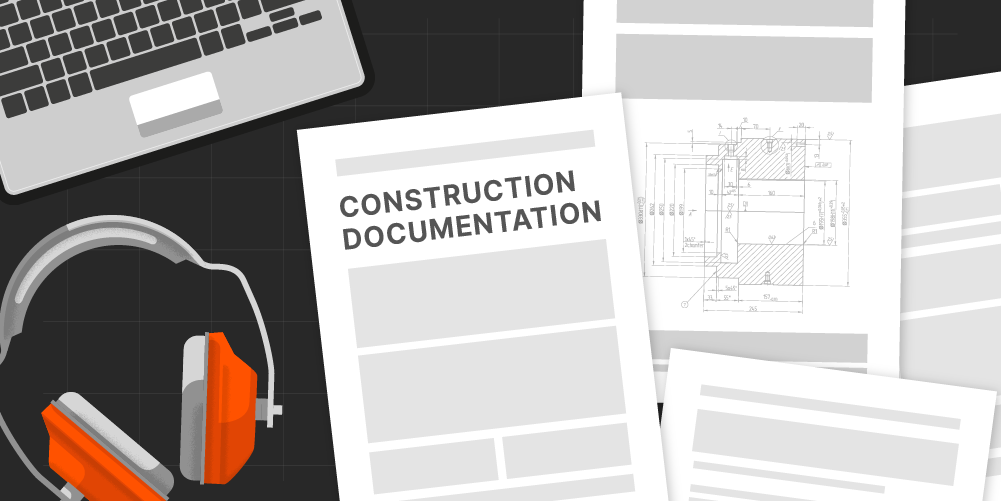— 3 min read
A Complete Guide to Construction Contract Management
Last Updated Nov 4, 2024
Last Updated Nov 4, 2024

Managing construction contracts can lead to an extensive physical paper trail. Sharing contracts, getting signatures and managing timelines is difficult when your team and clients are scattered across job sites and locations.
To be successful and efficient, centralising construction contract management is necessary.
Table of contents
Construction Contract Management Basics
Contract management in construction is the management of legal documents that specify the duties, roles and responsibilities of both project managers and owners. It is a continuous process of assessing risk, identifying resources and defining partnerships. It contains defined processes and methods for conducting a construction project – from start to finish.
These contracts include detailed information about all parties and a straightforward statement of work (SOW), such as terms and conditions of the agreement, the rights of both parties, the amount to be paid, the date of commencement of the work, and the expected date of completion.
It’s necessary to properly manage construction contracts as poor contract management can cause severe problems. Construction contracts must be made appropriately, so multiple legal and financial obligations are met throughout the entire building process.
Managing Contracts Throughout Their Lifecycle
Contract lifecycle management is better known in the construction industry as CLM.
CLM ensures the project is being properly managed and adhering to contractual elements by automating and simplifying multiple stages of construction contract management, including:
- Initiation
- Writing
- Procedure
- Workflow
- Negotiation
- Approval
- Implementation
- Continuing administration and compliance
- Renewal
Construction companies can better manage and reduce the number of mistakes in contracts with CLM software.
CLM software allows customers to see exactly how much money a company is spending and simplifies the contracting process for increased efficiency and fewer administrative expenses.
Types of Construction Contracts
Yes, plural. In the construction industry, there are many construction contract types and modifications, each of which use different kinds of agreements depending on the project’s category. The defining category may be based on the SOW, the type of schedule or budget, the timeline, or the types of parties involved.
A comprehensive construction contract is not necessarily a single document -- it may be comprised of 10+ documents defining responsibilities and risks regarding different aspects of the project.
Knowing which contract to use is integral to ensuring overall project delivery. Client satisfaction/retention and profit may also be determined by the type of construction contract chosen for the project. So choose wisely.
Take a look at 8 of the most common types:
- Integrated Project Delivery Contract
- Design-Build Contract
- Cost-Plus Contract
- Time and Materials Contract
- Guaranteed Maximum Price Contract
- Lump-Sum Contract
- Unit Price Contract
- Incentive Construction Contracts
Construction Contract Management Roles & Responsibilities
At any stage of the construction project, the contract must be managed and easily available to the multiple parties involved. Beyond the builder and client, there are sub-parties involved from the design phase to the execution phase, all of which must be documented with different construction contracts.
Managing numerous construction projects and contracts can lead to an extensive physical paper trail. Sharing contracts, getting signatures and managing timelines is difficult when your team and clients are scattered across job sites and locations.
To be successful and efficient, construction companies are beginning to centralise and digitise construction contract management. Centralising construction contracts means all parties are able to access information and update contracts and timelines anytime, anywhere.
Give your team the right tools and information to get the job done right the first time. Get more done with the same headcount by optimising your existing workforce's productivity and efficiently moving them from job to job.
How to Streamline Construction Contract Management
Keep your paper trail going, without the paper, with construction contract management software. Construction management software helps streamline tracking and distributing contract documents, while also changing orders, and offering payment applications. Construction management software also offers a collaborative platform for contract management and has controllable permission levels to restrict access and viewing rights to the proper parties.
Categories:
Tags:
Written by
Emma De Francesco
18 articles
Emma is currently Strategic Product Consultant at Procore where she loves partnering with clients to help them achieve the best possible results. She has worked as a Project Manager in previous roles, responsible for overseeing small to medium-sized projects across various sectors including commercial, health and lifestyle, retail, government and hotels. Throughout these projects, she managed everything from project costs, program and quality & safety, to design management, procurement, and authority approvals.
View profileExplore more helpful resources

Document Control, Mastered: Blueprints, Binders & the Cloud
In construction, poor document control is more than a hassle—it’s a liability. Mismanaged documents can delay builds, drive up costs, and cause security and compliance issues. It’s a challenge facing...

Construction Progress Claims: Keeping Cash Flowing
In construction, steady cash flow is critical—and progress claims help make that possible. These claims enable staged payments based on work completed, rather than waiting until project completion. In this...

Construction Analytics: The Key to Smarter Decision-Making
Data is everywhere in construction—embedded in schedules, site activity logs, safety reports, and cost tracking tools. Yet despite the abundance of available information, many construction decisions still hinge on gut...

Construction Document Management: The Challenges and Benefits of Embracing a DMS
Every construction project begins, continues, and ends with a mountain of paperwork. From initial bidding documents to contractor agreements, blueprints, variation orders, inspection reports, on and on it goes. And...